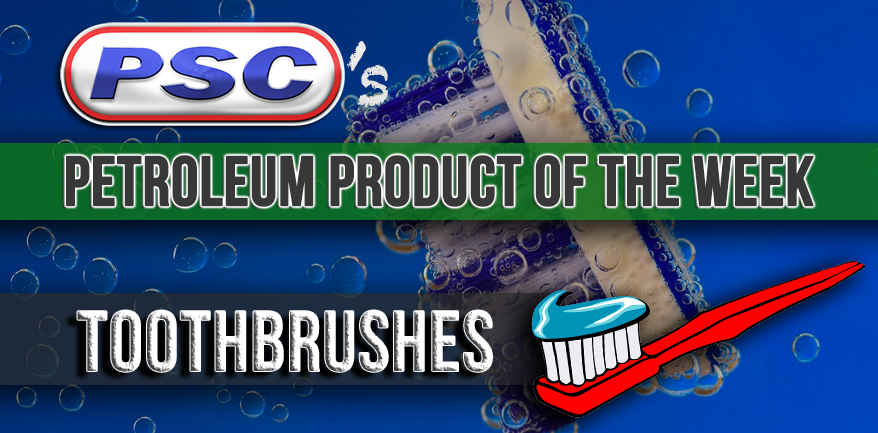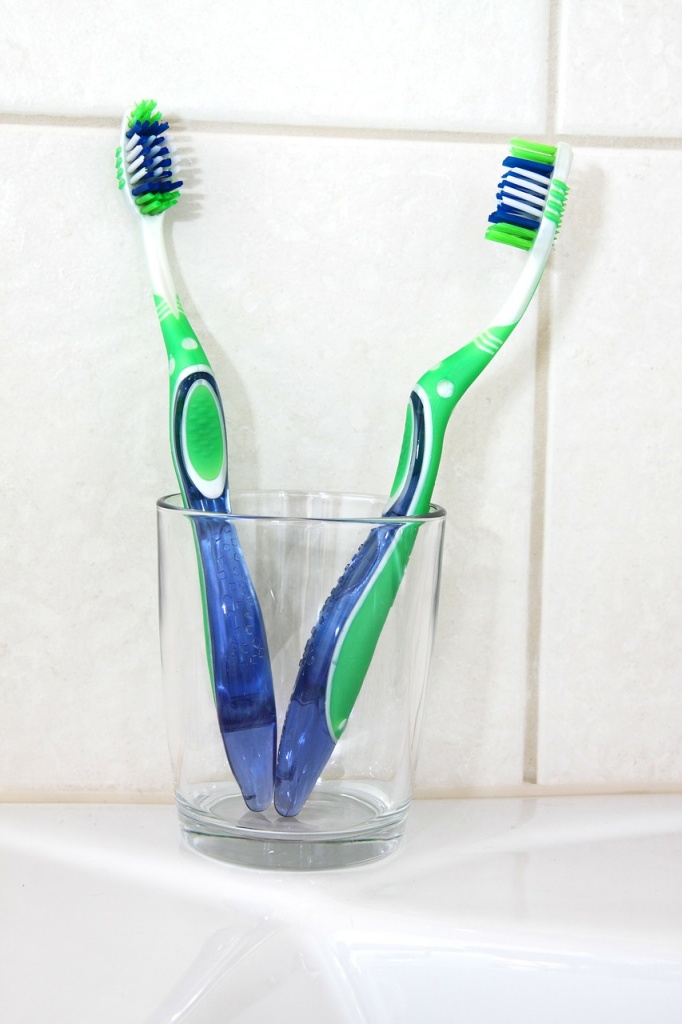Petroleum Product of the Week: Toothbrushes
By on Oct 06 2016

Every morning when you wake up, you probably have some kind of routine or a few daily rituals. Maybe you get out of bed, take a shower, get dressed, walk the dog, feed the family ...Chances are brushing your teeth is in there somewhere, too (before or after coffee?).
These little plastic, bristled sticks have been part of our lives and daily routines for as long as we've had teeth but have you ever actually thought much about them? Like how they're made or where they come from (besides the dental office!)?
Believe it or not, there's a long history behind the design and development of the modern toothbrush. And these days, it has a lot to do with petroleum.

History
People have been finding ways to clean their teeth long before the advent of the commercial toothbrush. Since 3000 BC, ancient civilizations used chew sticks " as an early toothbrush. These sticks were literally twigs with frayed ends the people would rub against their teeth.
Early bristle toothbrushes were invented in China in the late 15th century. These toothbrushes were made by attaching stiff, coarse hog-head hairs to a bone or bamboo handle. When the toothbrush traveled to Europe, Europeans began designing brushes with softer horsehairs and even feathers.
Around 1780, an Englishman by the name of William Addis created a more modern design out of carved cattle bone and swine hair. The first 2-row bristle brush was designed in 1844.
Boar bristles were actually used until 1938 when DuPont invented nylon. In 1938, the Miracle Tuft Toothbrush was invented and changed the game in the toothbrush world. This invention marks the birth and development of the truly modern toothbrush. By the 1950s, manufacturers began making softer nylon bristles and these were generally preferred.
The first electric toothbrush ever made was in 1939 and the first electric toothbrush made in the US was the Broxodent in 1960.
How They're Made
Today, toothbrushes come in many shapes, sizes, colors, and materials both manual and electric. However, most toothbrushes are still typically made of plastic-molded handles and nylon bristles. Synthetic bristles range from very soft, soft, and harder in texture.
Modern toothbrushes are produced mechanically on specialized manufacturing equipment (run on industrial lubricants!).
First, plastic (made from petroleum) is mixed and shaped into pellets which are then placed in an injection-molding machine. High temperatures melt the plastic and a rotating screw/plunger forces the liquefied plastic into the handle-molds. This forms the handle, which includes small holes (cores) where the bristles will be inserted.
Next, the nylon bristles are positioned into the handle core where they are stapled with tiny metal staples.
After the bristles are added, the toothbrushes pass through a trimming machine that slices the bristles into the correct length and shape for whatever the design.
Finally, the toothbrushes are packaged up and labeled and transported to distributors. Eventually, these toothbrushes will make it into your bathroom and your mouth to keep your smile free from cavities, gingivitis, and gum, disease.
Sources:
https://www.loc.gov/rr/scitech/mysteries/tooth.htm...






